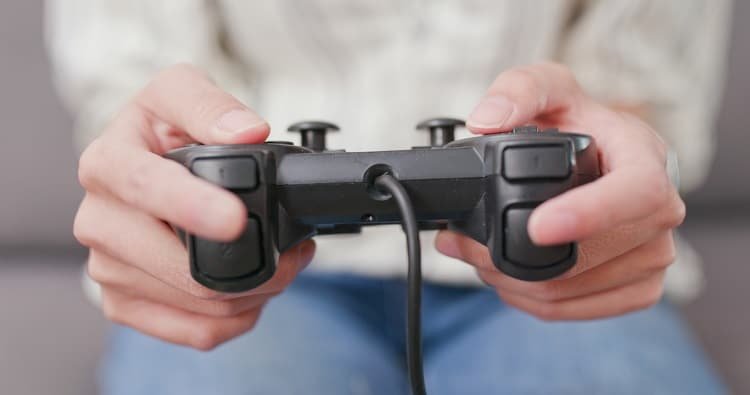How to help a partner with anxiety can be a challenging and exhausting endeavour. This post looks at 7 helpful tips for how you can help a partner with anxiety better.
According to the website healthnavigator.org.nz, anxiety is a typical human feeling, and anxiety disorders are extremely prevalent.
According to the latest statistics, nearly one in every four New Zealanders will suffer from an anxiety illness at some point in their lives. An estimated 15% of the population will be afflicted at any given moment.
Additionally, according to the National Institutes of Health, anxiety disorders are the most frequent mental ailment in the United States, affecting 18% of the adult population, or more than 40 million individuals. The prevalence of anxiety disorders among adolescents is much higher: 25% of youth between the ages of 13 and 18 suffer from some form of anxiety condition.

Despite the fact that anxiety is a normal and typical sensation for many individuals, some people reach a point where they are worried or nervous all of the time, and it begins to interfere with their day-to-day activities.
Defining Anxiety
The American Psychological Association define anxiety as an emotion characterised by feelings of tension, worried thoughts and physical changes like increased blood pressure.
People with anxiety disorders usually have recurring intrusive thoughts or concerns. They may avoid certain situations out of worry. They may also have physical symptoms such as sweating, trembling, dizziness or a rapid heartbeat.
According to therecoveryvilliage.com, the following are examples of physical anxiety symptoms:
- Heartbeat that is rapid
- Insomnia
- Teeth grinding is a common occurrence.
- Nausea
- Sweating
- a feeling of being out of breath
- Dizziness
- Headache
The following are examples of psychological anxiety symptoms:
- An inability to unwind
- Distress levels that are really high
- Anxiety that persists Irritability
- Having trouble concentrating
- Over-repetition of thoughts or problems in one’s head
If you have fallen in love with someone who suffers from anxiety, you may be aware of the difficulties that they face in their daily lives.
If you’re wondering how to help a partner with anxiety, know that there are things you can do to support a partner who is suffering from anxiety, which will make life more enjoyable for you both as a result of your efforts.

Helping a partner might not be easy, but you can definitely support them on their journey making things better for both of you in the long run.
Please note that even though anxiety is common for most of us at some point or another, according to professionals, people with anxiety disorders frequently have intense, excessive and persistent worry and fear about everyday situations.
If you or your partner are experiencing any of that, it would be good to contact a qualified professional as soon as possible to discuss your options.
Help a partner with anxiety with the following seven (7) suggestions:
Avoid attempting to fix them.
Recognise that you are not their therapist, but their wife, husband, boyfriend, girlfriend, partner, or lover.
While you can be there to support them during their difficult times, it’s critical to avoid pressuring them to behave the way you believe they should.
Believing you know how to help a partner with anxiety is fine, but putting too much pressure on them, even when you believe that following your advice will benefit them, they may feel as though they have failed you.
As a result, that will only serve to exacerbate any anxieties or worries they are already experiencing.
As a rule of thumb, I never encourage couples to try and fix each other.
Of course, we can be vulnerable with each other and share our thoughts and feelings openly and honestly, but in my experience, the help or support people oftentimes need must be found elsewhere.
As a husband and dad, I also recognise that our attempts to fix things for our loved ones come from a good place and have the right intentions.
However, sometimes we also need to recognise that we need outside help.
In this instance, avoid making your partner feel like they are failing you because of their anxiety and because you’re constantly trying to fix them.
Stop telling them that they have nothing to fear.
No matter how unreasonable or irrational you believe your partner’s anxieties are, telling them what you believe or think would most likely not help them.
That is not a good approach for how to help a partner with anxiety.
In fact, I can guarantee you that no matter how much you tell your partner to stop worrying or not fear something, that won’t change anything, least of all subdue their concerns.
A better approach than telling them that nothing to fear or to stop worrying, is to rather become curious and asked him why specific things causing them so much distress.

I appreciate that you’re only trying to help your partner by telling them there is nothing to fear, but it is most likely creating the opposite effect you’re aiming for.
Instead, it’s better to show them support by helping them express in words what it is they are feeling and why.
In that way, you’re supporting them in working through their own anxieties and thoughts.
That is a much better approach than simply steamrolling their feelings in the hope that it would “fix” things.
Oftentimes, simply talking about a problem will help to alleviate any anxiety that is being experienced.
Communicate openly and honestly with your partner.
Avoid treating your partner as if he or she is a small child who is incapable of dealing with any kind of negative news or situation.
This might create a difficult dynamic within your partnership.
Instead, be forthright.
For example, if you are going to be arriving late at home, inform your family so that they do not assume you are dead in a ditch.
If you have a huge bill to pay, tell them right away rather than trying to keep it a secret.
Hiding the truth can lead to your partner visualising the worst-case situation as a result of your actions.
Recognise that their definition of happiness may differ from your definition of happiness.
For some, partying and dancing will bring them Joy, while others may find happiness in playing video games.
We are all different, and that’s fine.

Someone who suffers from anxiety, for example, may find some delight in the fact that a day has passed without experiencing a panic attack.
To you, that might seem like a small thing, but for them, this seemingly insignificant triumph can mean a great deal.
Part of helping a partner with anxiety is to ensure that they know it is okay to feel what they are feeling and that they are not alone.
That is why the next tip is so helpful in your approach for how to help a partner with anxiety.
Let them know they are safe.
This is a critical tip.
Someone who suffers from anxiety, more than someone else, may believe that they are unlovable as a result of their anxiety.
That conscious or unconscious fear might even cause them to constantly worry that you’re going to leave them at some point.
Now, I can’t speak to the rest of your relationship, but it is critical that your partner knows that they are safe with you and it is okay for them to experience whatever it is they are experiencing right now.
Assure them that you are both on this journey together.
As people, we have an inherent need for certainty so that we can feel safe, secure, protected, accepted, and somewhat in control of things.
When we lose the sense of certainty, everything else starts to unravel because things become more unpredictable and less reliable (in our minds at least).
For a partner dealing with anxiety that emotional need is elevated.
It is therefore your job to let them know they are safe with you, regardless of what they going through at the moment.
You are there for them.
Remind yourself that you are free to live your life.
How to help a partner with anxiety also entails recognising and knowing how to take care of yourself.
Just because your partner suffers from anxiety does not preclude you from having a life of your own.
You are still permitted to go out with your friends, attend functions or events, pursue interests, or do something that only you enjoy, like a sport or a hobby.
But when you leave the house without your partner, make sure to reassure them that everything will be fine.
Make it clear that you will be thinking about them, and that you will come back home soon.

Listen, this point is important regardless.
No matter if your partner suffers from anxiety or not, it is always crucial to take care of yourself as well because self-care is important for maintaining your own physical and emotional well-being.
Moreover, your personal well-being also plays a role in preventing any potential thoughts of animosity towards your partner because of their struggles and the pressure they might be putting on your relationship
It’s important to constantly remind yourself and your partner that you are more than just the sum of your anxieties and worries. Neither of you is defined by anxiety.
Despite any existing anxieties and worries, there is still much to be enjoyed freely and without care.
Invite them to express themselves.
Sometimes as spouses or loved ones, because we are so desperate and adamant to help our partners overcome their struggles, we can easily forget that they know best.
The fact is your partner may already be aware of several strategies you can use to help them in overcoming anxiety.
Yes, they might not necessarily have the courage or strength to apply these ideas, but that doesn’t mean they don’t know what they need.
As a result, it is critical that you pay attention to what they might be thinking.
It’s crucial to listen to what they have to say and the ideas they have because no one knows them better than they do themselves.
Remember we can simply approach situations from our own perspective and experiences.
And if you lack the necessary experiences to truly understand what your partner might be going through, the best thing you can offer isn’t advice but rather an open mind and willingness to support.
Even when your partner comes up with a very strange suggestion that they might believe could help, one that doesn’t make sense to you at all, it is still worth exploring because they know themselves and what they need (most of the time anyway).
So invite your partner to express their thoughts and ideas, and try some of that to see what happens.
Take Away
Being in a relationship with a partner with anxiety can be difficult but there are also several things we can do to support them.
Incorporating the suggestions in this post into your daily routine is a good start and will help to alleviate anxious feelings while also improving your relationship with your partner in the process.
Additionally, and very importantly, a counsellor, therapist, or support group can also provide invaluable support, insight, and techniques for reducing anxiety and strengthening your bond as you navigate this path together.
